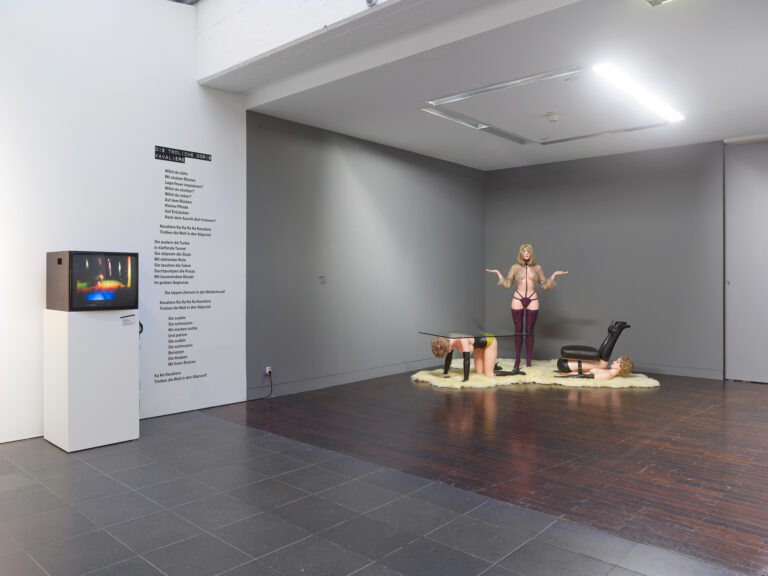Die Tödliche Doris
founded 1980
Hommage an Allen Jones
The Kitchen, New York
Die Tödliche Doris was the name of a punk group active between 1980 and 1987. The members were musicians, photographers, filmmakers, fashion designers, painters, writers, performers – in short: multi-medially acting transgressors! There was no fixed line-up. Wolfgang Müller and Nikolaus Utermöhlen, both art students, were among the founding members.
In 1984, they performed with Tabea Blumenschein and Käthe Kruse at the club The Kitchen in New York. One of the pieces staged that night was the Hommage an Allen Jones. In 1969, the British pop-art artist had created an ensemble of female statues, which he called Hatstand, Table and Chair. It consists of three naked female figures who, dressed only in leather corsages, long gloves, and fetish boots, are transformed into pieces of furniture. Allen Jones described the ensemble as a “psychological construction”, but he was still harshly criticized by the contemporary media for the sexist manner in which it was presented.

In their performance, the female members of Die Tödliche Doris are now turning the tables. The male members of the group are kneeling down, while Tabea Blumenschein and Käthe Kruse are sitting on them. A reversal is taking place: The gender roles change, the subservient function remains.
This action in New York can be regarded as an expression and an act of early creative queer feminism. Normative ideas of binary gender roles, as well as a male-dominated art world are being thwarted: The alleged sexual liberation of the 1960s, based on heterosexual male fantasies, has become obsolete. Die Tödliche Doris formulates an alternative concept to Allen Jones’ ensemble, which is geared towards a fluid and open performativity. The artistic collective cleverly questions the old sexual roles in art and the art business. Die Tödliche Doris was concerned with the deconstruction of traditional (pop) music and its conventions, and with the abolition of gender identities. The musical performance as a creative experiment serves to challenge outdated clichés.

